
International Journal of Aviation Aeronautics and Aerospace
Scope & Guideline
Navigating the Future of Aerospace Engineering Together
Introduction
Aims and Scopes
- Aviation Safety and Management:
Research focusing on safety management systems (SMS), risk management practices, and the cultural factors influencing safety in aviation operations. - Technological Innovations in Aviation:
Studies exploring the impact of advanced technologies such as artificial intelligence, virtual reality, and unmanned aircraft systems (UAS) on aviation operations and training. - Sustainability and Environmental Impact:
Investigations into the environmental implications of aviation practices, including fuel efficiency, sustainability initiatives, and the regulatory landscape affecting aviation. - Pilot and Crew Training and Performance:
Research on training methodologies, performance metrics, and psychological factors affecting pilots and crew members, including the use of simulation and augmented reality. - Air Transportation Economics and Policy:
Analyses of economic factors, policy implications, and the operational efficiency of aviation systems, including airport development and airspace management. - Human Factors and Ergonomics:
Explorations of human factors affecting aviation, including communication styles, stress management, and the impact of design on user experience. - Space Exploration and Technology:
Research focusing on aerospace innovations, including space travel, satellite technology, and the integration of new systems in aerospace operations.
Trending and Emerging
- Counter-Uncrewed Aerial Systems (UAS) Research:
A notable increase in research surrounding counter-UAS technologies and strategies reflects the growing concerns regarding security, privacy, and the integration of drones into airspace. - Integration of Artificial Intelligence in Aviation:
The application of AI in various aspects of aviation, from operational efficiencies to pilot training, is a rapidly growing area of interest, indicating the industry's shift towards automation and smart technologies. - Virtual and Augmented Reality Applications:
The use of virtual and augmented reality for training, simulation, and operational support is becoming increasingly popular, highlighting its potential to enhance learning and decision-making in aviation. - Sustainability and Green Aviation Initiatives:
Research focusing on sustainable practices, including alternative fuels and eco-friendly operational strategies, is gaining momentum as the aviation industry seeks to reduce its environmental footprint. - Human Factors and Crew Resource Management:
There is a growing emphasis on understanding human factors in aviation, particularly how communication, decision-making, and psychological well-being impact safety and performance. - Advanced Air Mobility and Urban Air Transport:
Emerging studies on urban air mobility concepts, including eVTOL (electric vertical takeoff and landing) aircraft, indicate a shift towards innovative transportation solutions in urban environments.
Declining or Waning
- Historical Analysis in Aviation Studies:
While historical research has been a part of aviation literature, recent trends indicate a shift towards more contemporary analyses and empirical studies, leading to fewer historical analyses being published. - Traditional Flight Training Methods:
As technology advances, there is a noticeable decline in research focused solely on traditional flight training methods, with a greater emphasis on modern simulation and virtual training techniques. - Basic Aerodynamics Research:
There seems to be a reduced emphasis on foundational aerodynamics research, as more studies are now exploring complex systems and integrated approaches rather than isolated aerodynamic principles. - Regulatory Compliance Studies:
Research dedicated to regulatory compliance in aviation appears to be decreasing, possibly due to a shift towards more innovative and operational aspects of aviation rather than compliance-focused studies. - General Aviation Topics:
Topics specifically related to general aviation are becoming less prominent, as the journal's focus shifts towards commercial aviation, unmanned systems, and advanced aerospace technologies.
Similar Journals

Space: Science & Technology
Innovative Insights into Aerospace EngineeringSpace: Science & Technology is a premier, open-access journal published by the American Association for the Advancement of Science, dedicated to advancing knowledge in the rapidly evolving fields of aerospace engineering and space sciences. Since its inception in 2021, the journal has rapidly established itself as a vital resource, achieving an impressive Q1 ranking in Aerospace Engineering and Q2 ranking in Space and Planetary Science as of 2023. With a Scopus rank placing it 45th out of 153 in Aerospace Engineering and 47th out of 104 in Space and Planetary Science, it serves as a critical platform for researchers, engineers, and students alike to disseminate their findings and engage with the latest developments in their field. The journal encourages innovative research articles, technical notes, and reviews that push the boundaries of what's possible in space exploration and technology. With its commitment to open access since 2021, Space: Science & Technology ensures that pioneering research is readily available to a global audience, promoting collaboration and knowledge sharing in an increasingly interconnected scientific community.
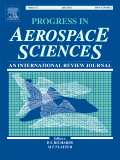
PROGRESS IN AEROSPACE SCIENCES
Elevating the future of flight with cutting-edge insights.PROGRESS IN AEROSPACE SCIENCES is a prestigious journal published by PERGAMON-ELSEVIER SCIENCE LTD, recognized as a leading platform in the field of aerospace engineering, mechanical engineering, and mechanics of materials. With an impressive history dating back to 1961, the journal covers a wide spectrum of topics pivotal to advancing aerospace technology and innovation. Its recent ranking as Q1 in multiple engineering categories underscores its significance, ranking #1 in Aerospace Engineering and placing within the top 20 percentile in both Mechanical Engineering and Mechanics of Materials, according to Scopus assessments. Researchers, professionals, and students looking to engage with high-impact research will find PROGRESS IN AEROSPACE SCIENCES an invaluable resource, offering insights into cutting-edge developments and methodologies. Although it does not operate under an open-access model, the journal upholds rigorous peer-review standards, ensuring that the published content meets the highest academic integrity. Situated in the United Kingdom, it plays a critical role in fostering international collaboration and knowledge-sharing in the aerospace sector.
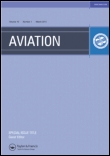
Aviation
Pioneering insights in the world of aerospace technology.Aviation, published by Vilnius Gediminas Technical University, is a leading open-access journal dedicated to the dynamic field of aerospace engineering, with an ISSN of 1648-7788 and E-ISSN of 1822-4180. Established in 2004 and set to converge in 2024, this journal aims to disseminate high-quality research that advances the understanding and application of aerospace technology. With an impact factor reflective of its contribution to the discipline, Aviation ranks at Q4 in the Aerospace Engineering category and occupies the 80th position out of 153 in Scopus, highlighting its growing significance among scholarly publications. By providing free access to its content since 2018, the journal enhances its reach and encourages collaborative efforts in the academic community, catering to researchers, professionals, and students eager to explore innovative studies and findings within aerospace engineering. Based in Lithuania, this journal serves as a vital resource for those aiming to contribute to the future of aviation.

Aerospace
Shaping the Future of Flight Through Open AccessAerospace is a premier open-access journal published by MDPI, established in 2014 and dedicated to the dynamic field of aerospace engineering. With an impressive Q2 ranking in the 2023 category of Aerospace Engineering, this journal is a vital resource for researchers, professionals, and students interested in advancements and innovations in aerodynamics, avionics, propulsion, and more. Operating from Switzerland, Aerospace provides a platform for the dissemination of high-quality research articles and reviews, contributing to the ongoing dialogue in the aerospace community. This journal not only enhances visibility through its open access model but also ensures that critical knowledge is freely available, fostering collaborative efforts and inspiring the next generation of aerospace engineers. With a Scopus ranking of #60 out of 153 in the Aerospace Engineering category, it plays a significant role in shaping the future of aviation and space exploration.
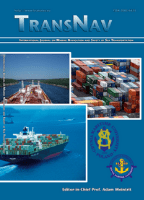
TransNav-International Journal on Marine Navigation and Safety of Sea Transportation
Navigating the Future of Marine Safety.TransNav - International Journal on Marine Navigation and Safety of Sea Transportation is a leading scholarly publication that addresses the critical themes of marine navigation and maritime safety. Published by Gdynia Maritime University in Poland, this open-access journal has been a vital resource since its inception in 2007, fostering a global dialogue among researchers, maritime professionals, and students. With an impressive trajectory of convergence from 2019 to 2024, TransNav is recognized for its impact in the realm of Ocean Engineering, Oceanography, and Transportation, holding a notable Q3 ranking in Ocean Engineering and Q4 rankings in both Oceanography and Transportation for 2023. The journal serves as an essential platform for disseminating research findings and advancements that enhance safety protocols and navigation strategies in sea transportation, thus contributing to the sustainability and efficiency of maritime operations worldwide. Researchers can access its wealth of information through various academic databases, ensuring that your work remains on the cutting edge of this vital field.

Journal of Aerospace Information Systems
Exploring New Frontiers in Aerospace EngineeringJournal of Aerospace Information Systems, published by the American Institute of Aeronautics and Astronautics, is a premier scholarly platform dedicated to advancing the interdisciplinary field of aerospace information systems. With a focus on innovative research and practical applications, this journal supports the dynamic integration of aerospace engineering, computer science, and electrical engineering. Positioned in Q2 quartiles for 2023 in its respective categories, it ranks notably in Aerospace Engineering (#52/153) and Electrical and Electronic Engineering (#357/797), indicating its significant influence within the scientific community. Research published within its pages addresses a diverse range of technological advancements and applications that are vital for the development of contemporary aerospace systems. As an open-access journal, it facilitates broader dissemination of knowledge, allowing researchers, professionals, and students to engage with cutting-edge discoveries and methodologies. With its competitive impact and commitment to fostering innovation, the Journal of Aerospace Information Systems is an essential resource for anyone involved in the burgeoning field of aerospace technology.
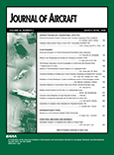
JOURNAL OF AIRCRAFT
Transforming Ideas into Aeronautical Advancements.JOURNAL OF AIRCRAFT, published by the American Institute of Aeronautics and Astronautics, stands at the forefront of aerospace engineering research, serving as a critical resource for researchers, professionals, and students in the field. With a proud publication history dating back to 1964 and continuing through 2024, the journal has established itself as a leading forum for innovative studies and advancements in aircraft design, technology, and utilization. Notably, it holds a prestigious Q1 ranking in Aerospace Engineering and is positioned at the 75th percentile among its peers. As a non-open access publication, it offers a subscription-based model, ensuring high-quality content disseminated to a discerning audience. The ISSN 0021-8669 and E-ISSN 1533-3868 provide easy reference for those seeking to engage with pioneering research in aviation and aircraft systems. Researchers and practitioners alike will find valuable insights and comprehensive analyses in this esteemed journal that continually shapes the development of the aerospace industry.
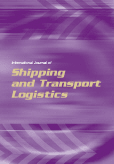
International Journal of Shipping and Transport Logistics
Empowering Research in Shipping and Supply Chain DynamicsWelcome to the International Journal of Shipping and Transport Logistics, a premier academic journal published by INDERSCIENCE ENTERPRISES LTD that serves as a vital platform for researchers, practitioners, and students in the fields of logistics, transportation, and management. Established in 2009 and converging through to 2024, this journal is committed to advancing scholarly discussions and innovations related to shipping logistics, supply chain management, and the integration of technology in transportation systems. As evidenced by its Q3 rankings across multiple categories in the 2023 Scopus classification, including Business and International Management, and Management of Technology and Innovation, this journal is recognized for its contributions to the academic community. Though currently not an open access journal, it offers subscriptions that facilitate access to high-quality research and case studies relevant to contemporary challenges in the shipping and transport logistics sectors. Engage with the latest findings and insights that are critical for developing sustainable and efficient transportation strategies globally.
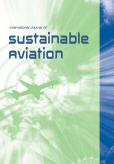
International Journal of Sustainable Aviation
Advancing sustainable solutions for a greener sky.International Journal of Sustainable Aviation is a pioneering publication aimed at advancing the fields of aerospace and environmental engineering with a specific focus on sustainability practices in aviation. Published by INDERSCIENCE ENTERPRISES LTD, this journal addresses the critical challenges and innovations in sustainable aviation, emphasizing research that contributes to resource efficiency, environmental preservation, and technological advancements. Although ranked in the lower percentiles of various engineering categories, it serves as a crucial forum for researchers, professionals, and students interested in new methodologies and infrastructures that promote ecological responsibility within the aviation sector. With an ISSN of 2050-0467 and an e-ISSN of 2050-0475, the journal invites contributions that explore sustainable strategies and innovative practices in the aviation industry. Operating from its base in Geneva, Switzerland, the journal aims to bridge the gap between theoretical research and practical applications in the quest for a greener aviation future.

AIRCRAFT ENGINEERING AND AEROSPACE TECHNOLOGY
Bridging theory and practice in aerospace technology.AIRCRAFT ENGINEERING AND AEROSPACE TECHNOLOGY, published by Emerald Group Publishing Ltd, is a leading peer-reviewed journal dedicated to advancing the fields of aerospace engineering and technology. With a strong emphasis on innovative research, the journal aims to bridge theoretical developments and practical applications within the aerospace sector. Although the journal does not currently offer open access, it continues to enrich the academic community's understanding of aircraft design, maintenance, and engineering processes, making it a crucial resource for researchers, professionals, and students alike. By fostering a rigorous dialogue among experts, AIRCRAFT ENGINEERING AND AEROSPACE TECHNOLOGY ensures the dissemination of cutting-edge findings and promotes sustainable practices in the aerospace industry, highlighted by its commitment to high-quality scholarship.